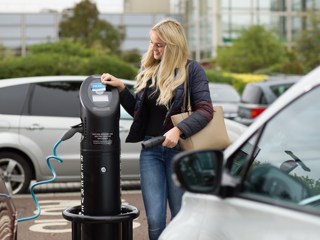By Thore Vestergaard senior vice president and managing director, commercial cards, AllStar Business Solutions
Every business incurs cost. In fact, the very engine of the entrepreneurial machine is all about managing costs while driving revenue.
However, it seems that the UK’s bosses might have a blind spot when it comes to the ‘on the road’ costs being incurred by employees on a regular basis.
While they may not seem like the biggest strategical priority in a company’s financial operations, these expenses are an all-important factor to keep on top of to help maintain staff morale and bottom-lines.
In fact, recent research from my company, AllStar Business Solutions, provides some surprising insight.
The bugbears of business expenses
For most employees, the cost of travelling to and from their work place can be a bone of contention but a means to end. Based on our recent survey, however, there’s no doubt that expenses generated on company time and not reimbursed efficiently is causing issues for many.
According to the research – which surveyed over 1,000 SME workers in the UK from a wide range of sectors – 57% stated that they have endured personal financial hardship after shelling out for ‘on the road’ work expenses.
Furthermore, of those who have paid out on behalf of their employer, 59% are between £50 and £200 out of pocket per month. For a worker on the average UK salary of £29,009 a year, this works out as between 8% and 30% of their disposable income each month.
So, for fleet van drivers, who take home on average £20,164 a year, it has the potential to make a significant dent in their disposable income.
Steering employees to look for jobs elsewhere
Beyond the financial implications of ineffective expense measures, the research also highlights that a further 80% agree that having to foot the bill for expenses negatively affects perceptions of employers.
With a further quarter (26%) becoming so frustrated that they have actually sought employment elsewhere because of inadequate expense procedures.
Therefore, not only do poor expense procedures cause employees’ personal financial hardship, the knock-on effect means that staff are less effective on the job as they spend time trying to avoid activities that leave them out of pocket and in extreme cases they are looking to leave as a result. SMEs are therefore losing valuable staff unnecessarily which then sees businesses having to pay substantial recruitment fees when it comes to hiring replacements.
Hauling companies towards a more effective expense procedure
Specific changes to a business’s day-to-day expense management can make a big difference not just to the way employees work, but to overall running costs too.
Streamlining expenditure via innovative solutions ultimately boosts profit margins and in turn makes for a happier workforce.
Creating an efficient expense system doesn’t have to take up much time and effort either with many convenient solutions available to help address this problem.
One of the best implementations for companies seeking to get on top of financial procedures, including expenses, is to harness the power of the fuel card to facilitate easier expense filing.
In practice, fuel cards and similar digital solutions, enable companies to link together on-the-road deliverables giving businesses oversight on staff spending by merging closed loop fuel networks and open loop scheme networks.
Taking the pain out of the expense process, they track on-the-road expenses making it easy to reconcile expenditure and spot any fraudulent spending too. Plus, they save SMEs time as long-winded physical processing of expense paperwork becomes a thing of the past.
It’s clear that companies need to ensure expenses - particularly frequently accumulated ones like on-the-road expenses - are reimbursed on time or a system is in place, so staff aren’t left facing financial hardship.
Handing back the financial control to SME owners via a fuel card solution benefits employees and employers alike – staff don’t have to spend their own money and wait for reimbursement, and companies can manage expenses as required. A win-win situation that makes for a more accurate bottom-line and increased staff morale.


















Login to comment
Comments
No comments have been made yet.